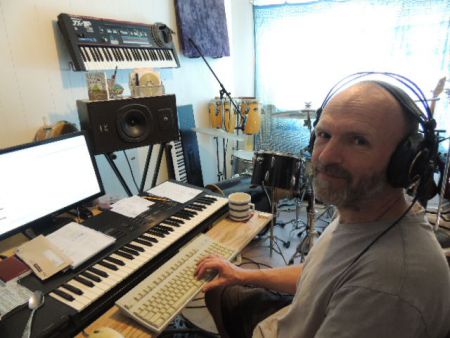Sudbury Voices is an ongoing series by the Sudbury Working Group of the Media Co-op. In today’s instalment, John Newlands, a recording artist in Sudbury, gives us his answer to the question: What changes would you like to see in your community and in the world?
John Newlands: Since I would argue that the world is but a collection of communities, I will answer the question without distinguishing between "community" and "world". And so, in no particular order:
I would like to see an emphasis on small community integration and autonomy. My idea of a small community is based on Spencer Wells' notion that a community whose number exceeds 150 has trouble maintaining its cohesion. Obviously, in a city the size of Sudbury, this would require some adaptation. One of the most crucial aspects in this regard is food security, which in the short term entails granting preference to truly local producers, and allowing for home-based food production (e.g. laying hens).
Also, I would like to see freedom from the sort of coercion that is embodied in state-centered laws and corporate media propaganda. This might be achieved by providing equitable time and space to local stories, commensurate with the platform which is currently granted to externally "sourced" infotainment. This would allow people to better understand their rights and responsibilities vis-à-vis the community.
And speaking of rights and responsibilities, existing Canadian society is predicated on theft, and this certainly holds true at the local level. Public spaces that are currently leased to commercial interests (i.e. billboards) would be better used to educate the members of the community on the subject of treaty rights and to promote awareness of the need to honour our treaties.
As an artist, I have a particular interest in the need for more options regarding public (as in commerce-free) art spaces. These could be community-funded and -run venues (both temporary and fixed).
Rachael Charbonneau: I have a few follow-up questions. What do food security issues have in common across communities of the world? What other ways could settlers promote settler treaty rights and responsibilities? What do you see as problematic at the intersection of art and commerce? Do you think there is a relationship between the present options for artistic space and the political content of art?
John Newlands: What food security issues have in common are corporate domination and government interference, which combine to implement and uphold a harmful system. The degree of harm differs of course from country to country, but the bottom line is that in every society dominated by governments and corporations, the average person finds it virtually impossible to provide for their own food security.
Settlers could do so by providing material and corporal support to movements that have a chance of effecting real change.
What is problematic at the intersection of art and commerce is that commercial venues work to undermine the very ideas that an artist might be trying to convey. An artist's goal is to say, "There is something wrong here." An establishment which is in the business of selling, say, beer, will (wittingly or not) push for the status quo. And so the artist enters into a type of Faustian bargain where they assume the decidedly non-radical role of entertainer.
(If you are interested in participating in the Sudbury Voices series, please contact us at: grassrootssudburymedia at gmail.com. You can respond in any format you like: audio, video, written, artistic, etc. You can also post your response to our question directly to our site by going to http://sudbury.mediacoop.ca/ and creating an account. If you need any help with posting, feel free to ask for help at the email address above.)
